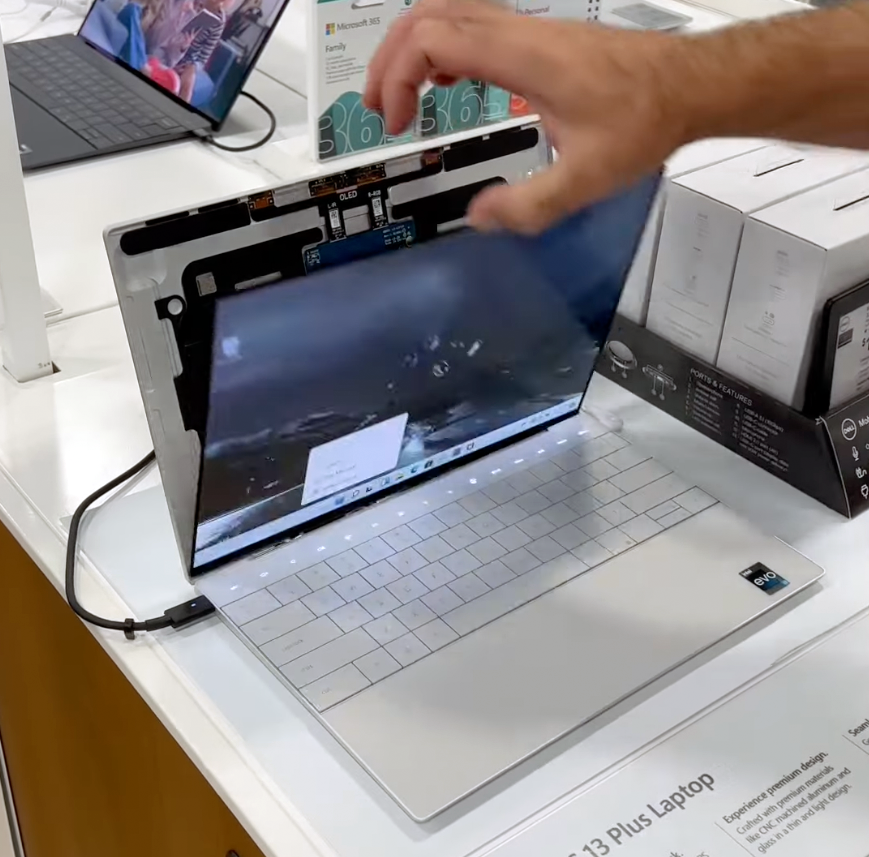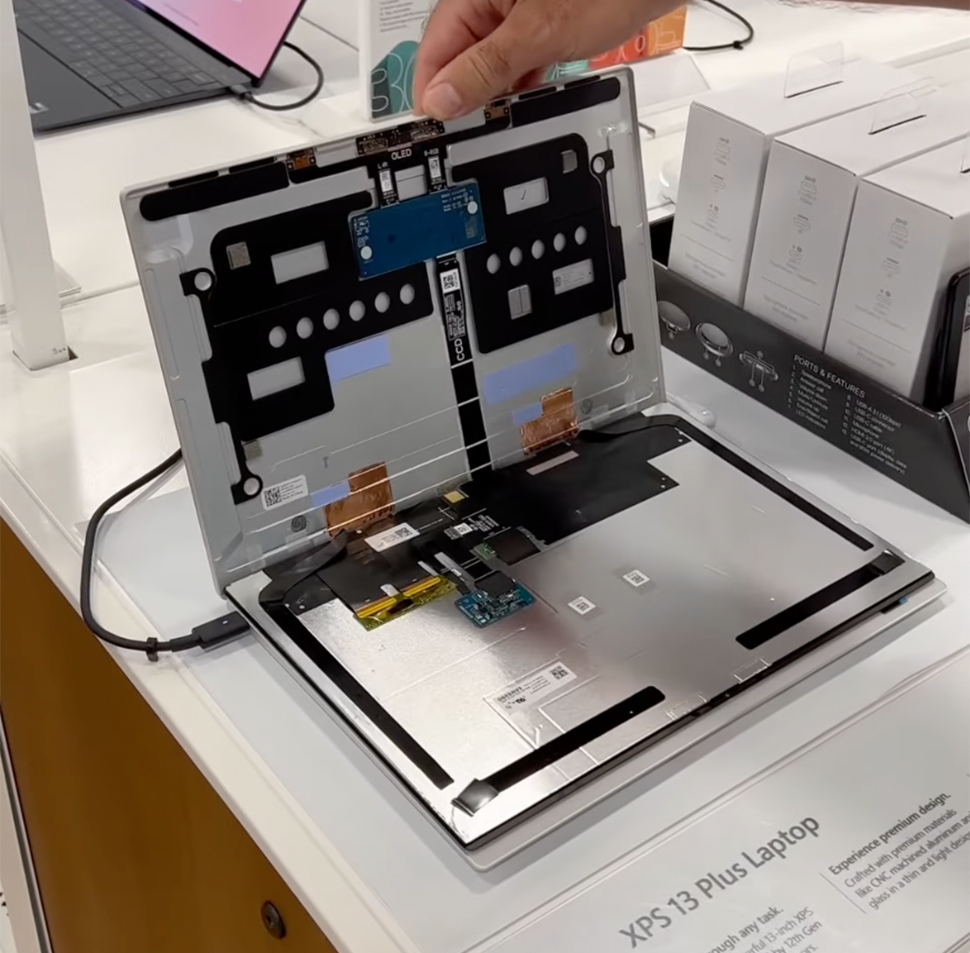Dell's XPS 13 Plus Has an Adhesive Problem: Screen May Fall Off
Only a limited number of systems are affected, says Dell.
Dell's recently unveiled XPS 13 Plus looks like an almost ideal laptop with its ultra-thin and lightweight design, high-performance and swift responsiveness guaranteed by Intel's Evo, an upgradeable SSD, and an advanced OLED display. But some of Dell's XPS 13 Plus machines have a significant problem: their screens may die or even literally detach because of an issue with the glue. Dell knows about the situation and is contacting the owners to fix it.
The problem with Dell's XPS 13 screen is specific to OLED models and only affects a limited number of units. In contrast, LCD models are unaffected, reports The Verge citing the notebook supplier. The Verge experienced the issue with their XPS 13 Plus as, during their review process, the screen on their unit died, as described by Reddit users. However, it is noteworthy that the unit tested by Tom's Hardware did not have any problems.
In other cases, XPS 13's screens displayed funky colors, lost touchscreen functionality, or even literally fell off their frames because an improper adhesive was used. One such situation was filmed in a Best Buy demo area (though it incorrectly calls the model the XPS 15). Dell is aware of the problem; it has corrected its production process and is contacting the owners of affected machines to fix them before their OLED displays die.


"Dell Technologies places the highest priority on the quality of our products," a statement by Dell published by The Verge reads. "We discovered that some screens on the XPS 13 Plus OLED systems may become loose because of problems with the third-party adhesive used, and we quickly corrected the issue in our production process. Dell is proactively reaching out to customers who may be impacted to replace the screen, ideally before it becomes loose."
Issues with display adhesives are pretty common in the industry. For example, in recent years, devices from Apple, OnePlus, and TCL/BlackBerry suffered from such issues as their displays either detached or reproduced colors incorrectly.
Get Tom's Hardware's best news and in-depth reviews, straight to your inbox.

Anton Shilov is a contributing writer at Tom’s Hardware. Over the past couple of decades, he has covered everything from CPUs and GPUs to supercomputers and from modern process technologies and latest fab tools to high-tech industry trends.
-
Sleepy_Hollowed ...did engineers now discover the reasoning behind bezels?Reply
Not going to lie, displays can get so hot now that I'm amazed this does not happen more often.
It used to be that displays had bezels holding them with screws, but I don't know this new thing sucks all around, displays are pretty fragile in general now. -
Sippincider ReplySleepy_Hollowed said:...did engineers now discover the reasoning behind bezels?
I'd imagine the engineers well know. It's the marketers discovering why we always did it that way. Or worse, corporate group-think discovering why.